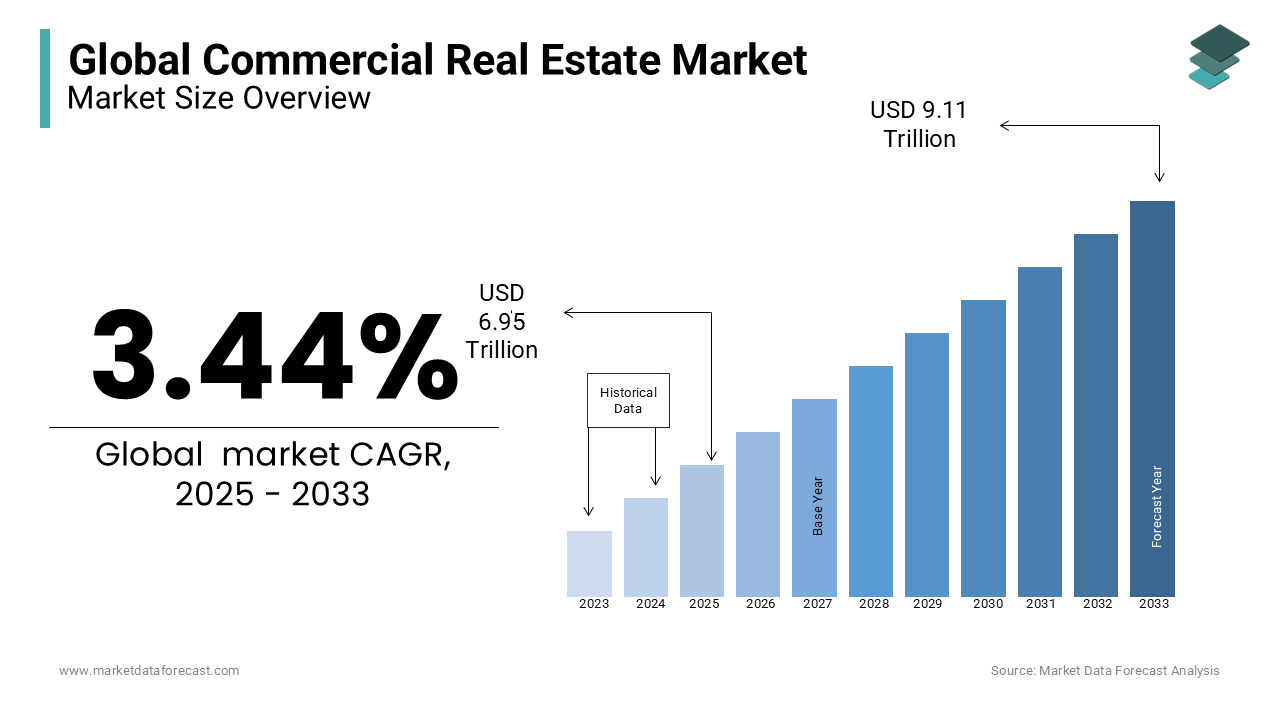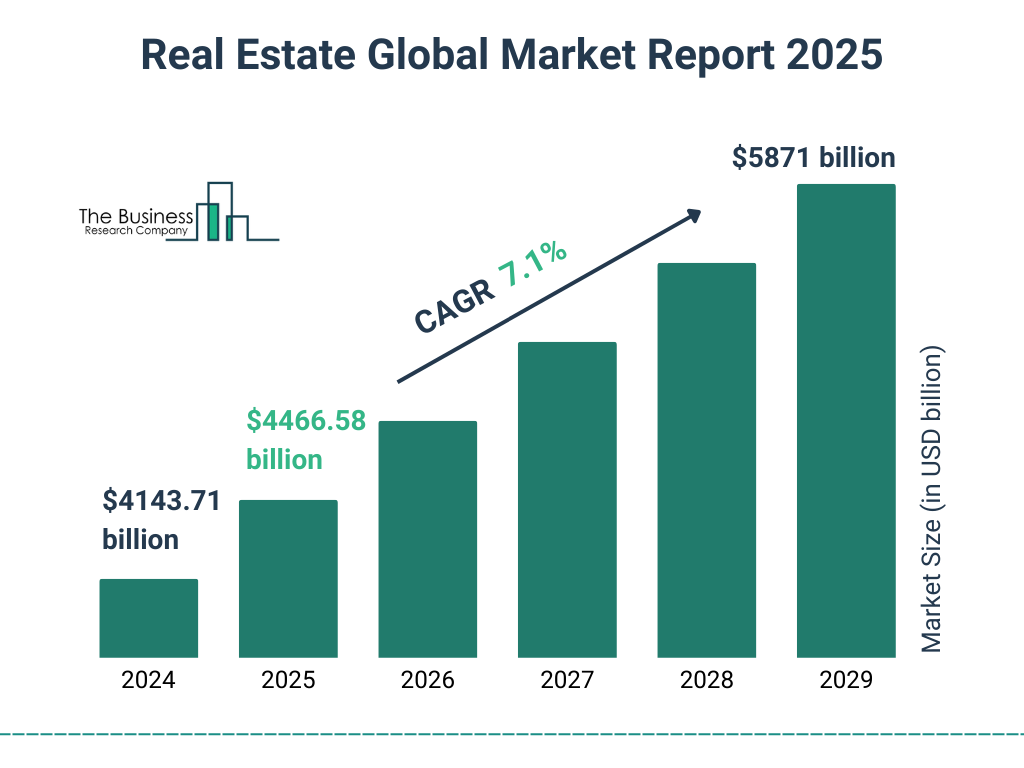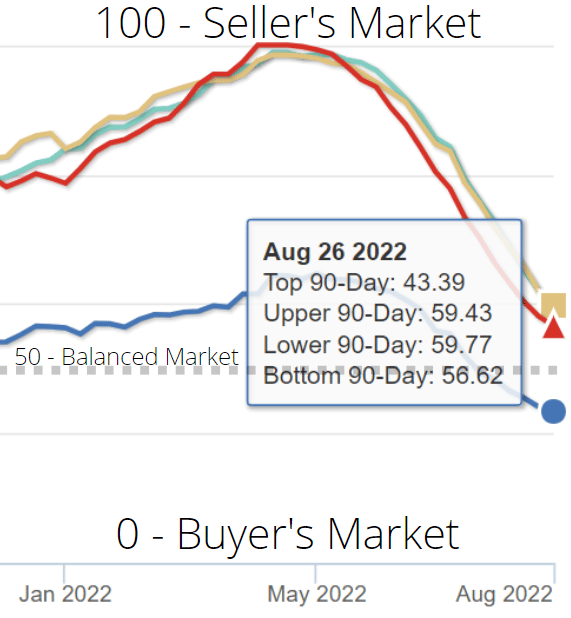Imagine having a crystal ball that could reveal the future of the real estate market. While such a magical tool doesn’t exist, staying ahead of market trends is crucial for anyone involved in buying, selling, or investing in property.
Whether you’re a seasoned investor or a first-time homebuyer, understanding the real estate market forecast can empower you to make informed decisions and seize opportunities. Are you curious about where property values might be heading or how interest rates could impact your next purchase?
In this blog post, you’ll discover insights and predictions that could shape your real estate strategy, ensuring you’re not just reacting to market changes, but anticipating them. Dive in to learn more and give yourself the edge in this ever-evolving landscape.

Economic Influences
The real estate market is influenced by various economic factors. These factors can shift property values and buyer behavior. Understanding them helps in making informed decisions.
Interest Rates Impact
Interest rates play a crucial role in real estate. Lower rates make borrowing cheaper. This can lead to more people buying homes. High rates make mortgages costly. Fewer buyers enter the market. This can slow down property sales. Rate changes can affect housing affordability.
Employment Trends
Job availability affects housing demand. More jobs create more buyers. People feel financially secure to purchase homes. High unemployment can decrease property sales. Fewer people can afford new houses. Employment trends influence local housing markets.
Inflation Effects
Inflation impacts the real estate market. Rising costs affect home prices. Buying power decreases with high inflation. Sellers may increase prices to cover costs. Inflation can lead to higher construction expenses. This can reduce new housing development.

Technological Advancements
Rapid technological advancements reshape the real estate market forecast. Smart home innovations and data analytics drive informed decisions. Enhanced virtual tours and AI tools streamline property management, making transactions more efficient.
Technological Advancements In the ever-evolving world of real estate, technology is reshaping the landscape in ways we couldn’t have imagined a decade ago. As a potential homebuyer or seller, have you noticed how your experiences are becoming more streamlined and convenient? These technological advancements are not just trends; they’re setting the stage for the future of real estate.Smart Home Integration
Imagine walking into a house where the lights adjust based on your mood, the thermostat learns your schedule, and security systems offer peace of mind at the touch of a button. Smart home technology is no longer a novelty; it’s becoming a standard expectation. Homebuyers today are looking for properties equipped with smart features that can make life easier. If you’re planning to sell, adding smart home devices could significantly boost your property’s appeal and value.Virtual Reality Tours
Remember the days of driving from house to house, only to find that pictures didn’t match reality? Virtual reality (VR) tours are changing that narrative. With VR, you can tour multiple homes from the comfort of your living room, saving time and energy. This technology offers a 360-degree view of properties, allowing you to explore every nook and cranny. Imagine making informed decisions without ever stepping foot inside a home. Wouldn’t that make your home-buying journey so much more efficient?Blockchain In Real Estate
Blockchain might sound complex, but its impact on real estate is straightforward and powerful. This technology offers transparency, security, and efficiency in transactions. Have you ever worried about the safety of your property dealings? Blockchain can reduce fraud by creating an unchangeable record of transactions. It simplifies the buying process, ensuring that your investment is safe and sound. As a buyer or seller, understanding and embracing blockchain could provide you with a competitive edge. Incorporating technology into real estate is not just about keeping up with the times; it’s about enhancing your experience. What technological feature would make your real estate journey smoother?Sustainability Trends
The real estate market is shifting towards sustainability trends. Homebuyers and investors are now prioritizing eco-friendly practices. This change is reshaping the industry landscape. Let’s explore these sustainability trends further.
Green Building Practices
Green building practices focus on reducing environmental impact. They use sustainable materials and efficient designs. Builders use recycled resources and non-toxic materials. This approach conserves energy and promotes health. The demand for green buildings is rising. People want homes that reduce their carbon footprint.
Energy Efficiency Innovations
Energy efficiency innovations are transforming real estate. Modern homes feature smart thermostats and solar panels. These technologies cut energy use and costs. They also improve home comfort. Energy-efficient homes attract eco-conscious buyers. This trend is essential for sustainable living.
Sustainable Urban Development
Sustainable urban development focuses on eco-friendly cities. It includes green spaces and public transportation. Mixed-use developments reduce the need for long commutes. These urban areas prioritize sustainability and community well-being. People enjoy living in eco-friendly environments. It’s a growing trend in real estate markets.

Demographic Shifts
Shifting demographics reshape real estate market forecasts. Young buyers drive demand for urban homes. Retirees seek quieter, suburban areas. Both trends influence market growth and property values significantly.
The real estate market is constantly evolving, and one of the significant factors driving this evolution is demographic shifts. These changes in population dynamics affect housing demand, location preferences, and even the types of homes people desire. Understanding these shifts can help you make informed decisions, whether you’re buying, selling, or investing in real estate.Aging Population
As the population ages, there’s a growing demand for homes that cater to older adults. Many seniors prefer downsizing to smaller, manageable homes or moving to communities with easy access to healthcare and social activities. This trend opens up opportunities in developing senior-friendly housing or investing in areas known for their retirement amenities. Have you noticed more of your older relatives or friends moving to warmer climates? This is not just a coincidence. The aging population often seeks locations with milder weather, leading to increased demand in regions like the Sun Belt in the United States. This shift can significantly impact property values and rental yields in these areas.Millennial Homebuying Patterns
Millennials are now the largest group of homebuyers. Unlike previous generations, they tend to prioritize experiences over possessions, influencing their homebuying behavior. They often look for properties that offer a good balance of work and lifestyle, such as homes near urban centers with vibrant communities. Is your neighborhood seeing a rise in coffee shops, coworking spaces, and tech hubs? This could be a sign of millennials flocking to your area. Understanding their preferences can help you target this demographic effectively, whether you’re selling a home or looking to rent out a property.Urban Vs. Suburban Preferences
There’s been a noticeable shift in preferences between urban and suburban living. While urban areas offer convenience and excitement, suburbs provide more space and tranquility. During the pandemic, many people moved to suburbs seeking larger homes with outdoor spaces. Have you ever thought about how remote work is changing where people want to live? As more companies offer flexible work arrangements, suburban areas are becoming increasingly attractive. This shift can affect property prices and demand, making it crucial to stay updated with these trends if you’re investing in real estate. Understanding these demographic shifts can give you a competitive edge in the real estate market. Are you ready to adapt your strategies to meet these evolving demands? Keep an eye on these trends, and you’ll be better prepared to navigate the changing landscape.Government Policies
Government policies play a crucial role in shaping the real estate market forecast. They impact interest rates, taxation, and housing regulations, influencing market trends. Understanding these policies helps predict future market dynamics.
Housing Regulations
Housing regulations aim to ensure safe and livable conditions for residents. They set standards for construction, maintenance, and occupancy. If you’re eyeing a property investment, knowing local housing regulations can help you avoid costly mistakes. Imagine buying a property only to find out it doesn’t meet certain codes. This could lead to expensive renovations or fines. Always check the local housing laws before sealing the deal.Tax Incentives
Tax incentives are a powerful tool the government uses to encourage real estate investment. These incentives can significantly reduce your tax burden, making property investment more attractive. Consider the case of first-time homebuyer credits. These credits make buying a home more affordable, potentially boosting the housing market. Are you taking full advantage of available tax incentives? Understanding these incentives can turn a good investment into a great one. Always consult with a tax professional to maximize your benefits.Zoning Laws
Zoning laws determine how land can be used and developed. They can influence property values and the types of businesses or residences that can be built in an area. Imagine buying a residential property in a zone that’s being converted for commercial use. This change can drastically alter the neighborhood’s character and your property’s value. Stay informed about zoning changes in areas where you plan to invest. This knowledge helps you anticipate market shifts and make smarter investment choices. Government policies are more than just words on paper. They can directly impact your real estate ventures. Are you ready to leverage them to your advantage?Global Market Influences
The global real estate market is influenced by various international factors. Understanding these influences can help investors make informed decisions. This section explores foreign investment trends, international economic shifts, and cross-border transactions.
Foreign Investment Trends
Foreign investors play a significant role in shaping the real estate market. Their interest often boosts property values in target regions. Countries with stable economies attract more foreign investments. Investors look for markets with growth potential. This can lead to increased competition and higher prices.
International Economic Shifts
Economic changes worldwide impact real estate markets. Currency fluctuations can affect property values. A strong dollar may attract more foreign buyers. Economic downturns can lead to decreased property demand. Investors must stay informed about global economic conditions.
Cross-border Transactions
Cross-border transactions are common in real estate. These transactions involve buying property in different countries. They require understanding of local laws and regulations. Buyers must be aware of cultural differences. This can affect negotiation strategies and property management.
Market Predictions
The real estate market evolves constantly. Predicting its future is crucial. Experts study trends, data, and economic factors. These insights guide investors and homeowners. They help navigate changes and opportunities.
Price Growth Forecasts
Home prices may rise steadily. Low interest rates boost buying power. Urban areas could see higher price hikes. Suburban regions might experience moderate growth. Economic stability influences these trends. Buyers should stay informed.
Rental Market Projections
Rental demand remains high. Cities attract young professionals. They prefer renting over buying. Suburbs see increased interest from families. Rents may rise in popular areas. Supply and demand drive these changes.
Commercial Real Estate Outlook
Commercial spaces face new challenges. Remote work affects office space demand. Retail spaces adapt to online shopping trends. Industrial properties gain value due to e-commerce. Location and sector play key roles in outcomes.
Frequently Asked Questions
What Are Current Real Estate Market Trends?
The real estate market is experiencing a shift towards suburban areas. Many buyers prefer larger homes and outdoor spaces. Additionally, low mortgage rates are fueling demand. Urban areas are seeing slower growth compared to previous years. This trend is expected to continue into the foreseeable future.
How Do Interest Rates Impact Real Estate Market?
Interest rates significantly affect the real estate market. Lower rates make borrowing more affordable, increasing buyer interest. High rates, on the other hand, can deter potential buyers. This results in fewer transactions and slower market growth. Monitoring interest rate trends is crucial for real estate investors.
Is Real Estate A Good Investment Now?
Real estate remains a solid investment, particularly in growing areas. Low interest rates offer favorable borrowing conditions. However, market volatility requires careful analysis before purchasing. Long-term investments in real estate often yield substantial returns. It’s essential to research local market conditions before making decisions.
How Does Remote Work Influence Real Estate?
Remote work has increased demand for homes with dedicated office spaces. Suburban and rural areas are becoming more attractive. Many employees are seeking larger homes away from city centers. This trend is reshaping traditional real estate dynamics. Employers offering remote work flexibility further amplify this demand shift.
Conclusion
The real estate market holds opportunities and risks. Staying informed helps navigate changes. Trends reveal patterns, guiding future decisions. Understanding local markets remains crucial. Prices may fluctuate, affecting investment strategies. Experts suggest monitoring economic factors closely. Supply and demand dynamics influence housing costs.
Interest rates impact buyer affordability. New policies could shift market conditions. Investing wisely requires careful analysis. Trust data and insights over speculation. Adaptation is key for success in real estate. Stay proactive, remain flexible. Knowledge empowers effective decision-making. The future may bring challenges, but opportunities exist.
Keep learning, stay prepared for what’s next.
